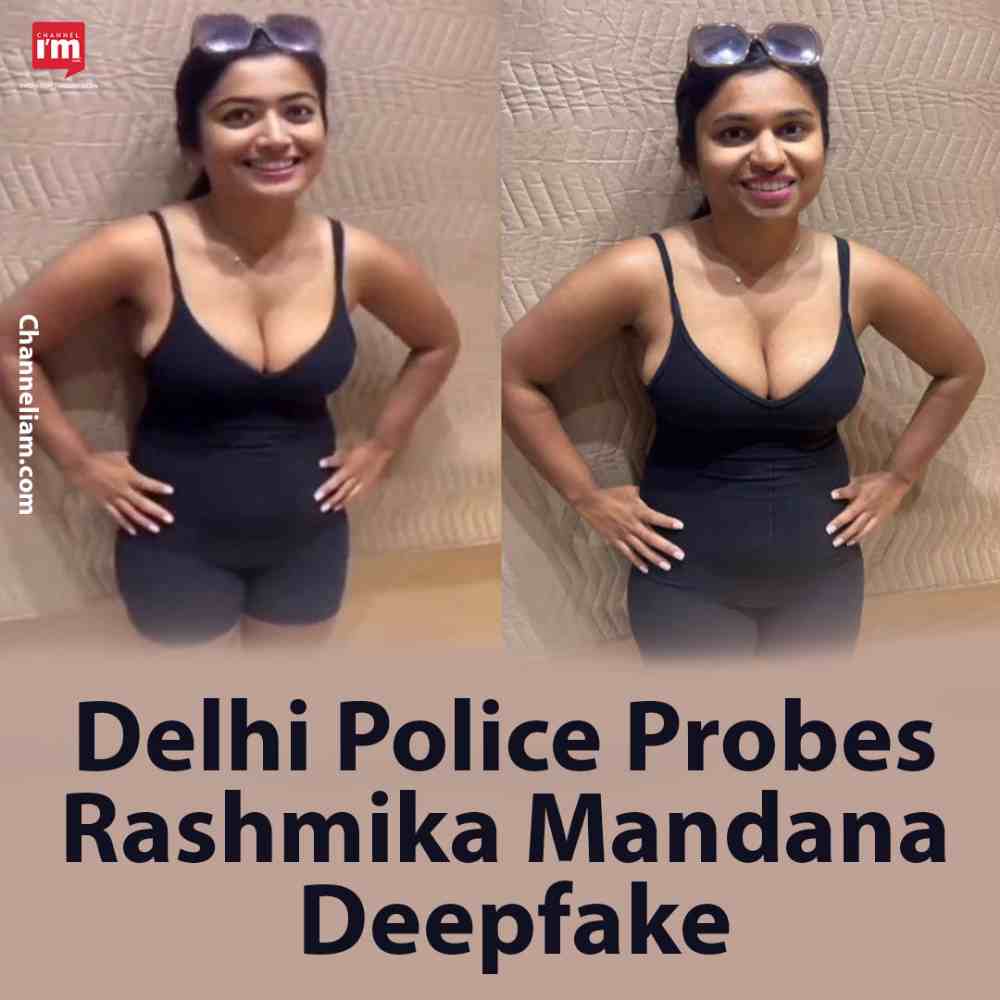The Delhi Police have taken swift action in response to a deepfake video scandal involving popular actress Rashmika Mandana. The actress, distressed by the incident, has expressed concerns about the illicit use of her image in the manipulated video. This article delves into the legal measures taken by the Delhi Police, the involvement of the Delhi Commission for Women (DCW), and the broader implications of deepfake content on social media.

Delhi Police Registers FIR and Launches Investigation
In response to the widespread circulation of the deepfake video, the Delhi Police have registered a First Information Report (FIR) under sections 465 and 469 of the Indian Penal Code, 1860, and sections 66C and 66E of the Information Technology Act, 2000. The FIR has been lodged at PS Special Cell, Delhi Police, and a thorough investigation into the matter is currently underway. This initiative by law enforcement underscores the severity of the issue and aims to hold those responsible for the creation and dissemination of the deceptive content accountable.
DCW Takes Suo-Moto Cognizance and Seeks Swift Action
The Delhi Commission for Women (DCW) has proactively addressed the deepfake video scandal, taking suo-moto cognizance based on media reports. The commission expressed its concern and emphasised the need for immediate action in light of the potential harm caused to the actress’s reputation. In an official statement, the DCW acknowledged the actress’s concerns, stating that her picture had been illegally morphed in the video.

Commission Demands Accountability and Information
The DCW, noting the absence of arrests in the case, has requested a copy of the FIR, including details of the accused parties, by November 17. The commission emphasises the gravity of the situation and urges the authorities to provide a comprehensive action taken report. The statement emphasises the importance of securing justice in this matter and requests prompt cooperation from the concerned authorities.
Government Advisory and Minister’s Call for Action
In a broader context, the government, on November 7, issued an advisory to leading social media platforms, urging them to remove reported deepfake content within 36 hours. Failure to comply could result in the loss of ‘safe harbour immunity’ and render platforms liable to criminal and judicial proceedings under Indian laws. Union Minister of State for Electronics and IT, Rajeev Chandrasekhar, has encouraged victims of deepfake incidents to file police complaints. The minister highlights the legal recourse available under the IT Act, which includes provisions for jail time and financial penalties against offenders.
The deepfake video scandal involving Rashmika Mandana has prompted a swift and coordinated response from law enforcement and regulatory bodies. As technology evolves, the need for stringent measures to combat the misuse of artificial intelligence becomes increasingly evident. The incident also sheds light on the importance of proactive measures by social media platforms to curb the dissemination of deceptive content. The ongoing investigation and the actions taken by the DCW and government authorities underscore the commitment to protecting individuals from the malicious use of deepfake technology.
